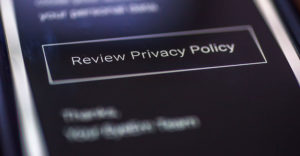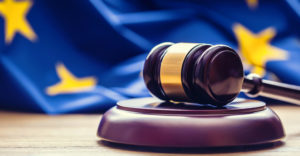A new front may have opened up between the Department of Justice and Silicon Valley in the ongoing legal battle over government access to encrypted data, this time involvingWhatsApp, the electronic messaging and voice system owned by Facebook.
DoJ officials have been debating how to proceed in a criminal case in which a court-ordered wiretap has been hindered by WhatsApp encryption, The New York Times reported last week.
The report did not specify the location or nature of the case but said it did not involve terrorism and that court filings were under seal.
The Justice Department declined to comment on the report, spokesperson Peter Carr told the E-Commerce Times.
Apple Bites Back
WhatsApp already is embroiled in a high-profile criminal case in Brazil. The service was blocked temporarily in December, and earlier this month a Facebook executive wasjailed briefly after the company refused to cooperate in a criminal investigation.
The new case comes at a tense time, as the ongoing legal battle between the DoJ and Apple has roiled the technology industry. The FBI wants Apple to create a software application that would let investigators access an encrypted iPhone belonging to one of the shooters in the San Bernardino, California, terrorist attack late last year that left 14 people dead and dozens injured.
A number of rival technology firms and civil liberties advocates have filed briefs on behalf of Apple, arguing that compliance with such an order would put millions of people at risk because a software tool in the wrong hands could be used to hack into the accounts of private citizens.
Foreign governments, including China, could force companies to provide access to encrypted data belonging to political dissidents or citizens in those countries, according to the briefs.
“All Americans should be concerned with a precedent that mandates vulnerabilities in encryption,” said Michael Beckerman, CEO of theInternet Association.
“Ultimately, requirements that companies weaken or undermine strong encryption harm consumers and undermine our national security,” he told the E-Commerce Times.
TheElectronic Frontier Foundation, along with 46 other technology industry experts, filed an amicus brief arguing that the Apple order would violate the First Amendment, according to Nate Cardozo, a staff attorney on the EFF’s digital civil liberties team.
The Court of Public Opinion
“All the legal analysis of the WhatsApp question reads this as an open-and-shut case due to the interaction of the Communications Assistance for Law Enforcement Act, along with a case from the Ninth Circuit called The Company v. United States,” said Ross Schulman, senior counsel at New America’sOpen Technology Institute.
The Communications Assistance for Law Enforcement Act contains a provision that says a telecommunications provider is not responsible for decrypting communications encrypted by a customer. Because WhatsApp keeps the encryption keys on the customer’s device, it would be protected, Schulman said.
“Given that the case looks to be one that should easily come down on the side of WhatsApp, why did the government leak its investigation? It looks like they still want to use their position in a different court — that of public opinion — even if they don’t end up pressing their actual case before a judge,” he told the E-Commerce Times.
Inflection Point
“When it comes to encryption, the cat is out of the bag,” said Andrea Castillo, program manager of the Technology Policy Program at George Mason University’sMercatus Center.
“Punishing companies like WhatsApp and Apple for employing strong security techniques will do nothing to prevent criminals who are already intent on breaking the law,” she told the E-Commerce Times.
Meanwhile, “innocent Americans will be dramatically less secure if encryption is criminalized,” Castillo said. “In this age of constant hacking and data breaches, we need more encryption, not less.”
The DoJ may be getting more aggressive in pursuing these kinds of cases with the WhatsApp investigation, given the pressure on Congress to intervene and the furor over the Apple encryption case, said Charles King, principal analyst at Pund-IT.
“That’s partly due to the tech industry reaching an inflection point of sorts, where vendors are developing security products that they claim to have no control over once they’re in customer’s hands,” he told the E-Commerce Times.
Race to Secure
Several technology firms, including Google, Snapchat and WhatsApp, are planning either new apps with higher levels of encryption or upgrades to existing apps with strong encryption, according to The Guardian.
Google reportedly is working on extra uses of the technology for an existing encrypted email service, WhatsApp is working on an expansion of its encrypted messaging service to include voice, and Snapchat is working on a secure messaging service.





















































Social Media
See all Social Media